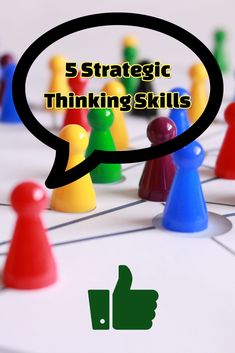Introduction
Strategic thinking is the ability to see the big picture, identify goals, and develop a plan to achieve those goals. For more able pupils, honing their strategic thinking skills is a crucial factor in realizing their full potential. This article will explore the importance of strategic thinking for more able pupils, as well as effective methods educators can use to develop these skills within their students.
The Importance of Strategic Thinking for More Able Pupils
More able pupils often possess advanced cognitive abilities and a strong capacity for learning. However, without strategic thinking skills, they may struggle to effectively apply their knowledge in problem-solving situations, leading to underachievement or disengagement from academic pursuits. By fostering strategic thinking for more able students, educators can help them better utilize their intellectual abilities and enhance their overall academic performance.
Methods for Developing Strategic Thinking in More Able Pupils
1.Encourage Critical Reflection: Facilitate an environment where students regularly reflect on their learning. By providing timely feedback and prompting students to evaluate their strengths and weaknesses, teachers can encourage more able pupils to become more self-aware strategists.
2.Teach Problem-Solving Skills: Introduce complex problems that require creative and critical thought processes. Encourage more-able students to approach these challenges by breaking them down into manageable steps and evaluating possible solutions.
3.Incorporate Cooperative Learning: Group work can lead more able pupils to develop valuable strategic thinking skills as they work with peers to achieve common goals through sharing ideas, negotiating roles, and evaluating progress collaboratively.
4.Use Real-Life Scenarios: Providing opportunities for students to connect their learning with real-life situations can motivate them to employ strategic thinking by identifying goals and designing plans in response to complicated issues.
5.Promote Time Management: Encourage more able students to develop effective strategies to manage their time by setting priorities, breaking down tasks, and establishing benchmarks to monitor progress.
6.Offer Mentorship Programs: Pairing students with accomplished mentors can be an effective way for more able pupils to nurture strategic thinking through observation, reflection, and advice.
7.Foster a Growth Mindset: Promote the idea that strategic thinking skills can be developed over time – not just an inborn trait for certain individuals. Encourage students to take on challenges, learn from setbacks, and continuously improve.
Conclusion
Developing strategic thinking skills in more able students is essential to unlocking their full potential. By incorporating a variety of teaching strategies that nurture these abilities and provide ample opportunities for practice and reflection, educators can help more able pupils become more effective thinkers and learners. In doing so, these students will be better equipped for long-term academic success and meaningful contributions to the world around them.





